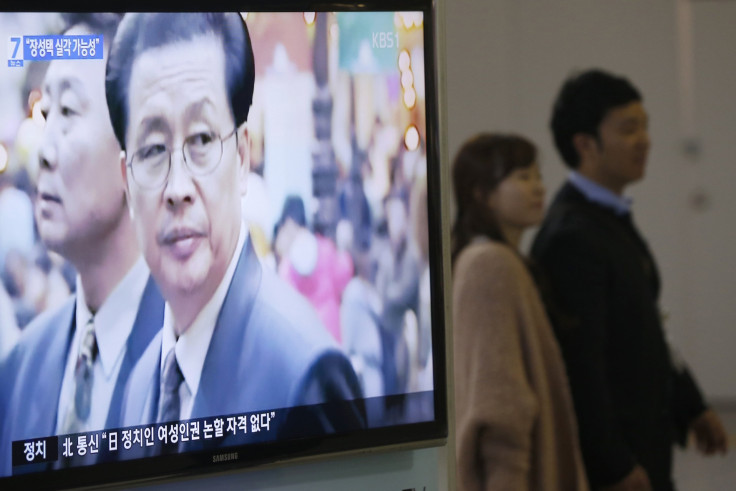North Korea's High-Profile Defectors: Aide Of Ousted Jang Song Thaek Reportedly Seeking Asylum In South Korea

Following the news that North Korean leader Kim Jong-un ousted his own uncle, Jang Song Thaek, one of the country’s most powerful leaders, one of close associates of the spurned politician is seeking asylum in South Korea.
According to South Korean cable news station, YTN, the unnamed aide, responsible for managing Jang’s funds, reportedly applied for a request for asylum two months ago and is currently in China under the supervision of South Korean officials. Although South Korea’s Unification Ministry, the bureau that handles issues between North and South, could not confirm the defection report, the move would not be denied.
Ahead of Jang’s dismissal from his position as vice chairman of the North Korean National Defense Comission, two of his closes associates were also rumored to have been executed in November after some allegations of corruption, suggesting that those in Jang’s inner circle could be at risk. Kim Jong-un’s rise to power was sudden, after the unexpected death of his father, the late Kim Jong-il, in December of 2011. When Kim Jong-un took the helm, his staff and other top leaders were all from his father’s exisiting regime. Now, reports are suggesting Kim Jong-un is cleaning house of all older members, to make way for Kim’s self-appointed team.
Jang’s aide defecting to the South would be considered a high-profile defector, shedding a little light on the internal workings and changes of the North Korean leadership. While most of the reports are speculative or involve unnamed sources, high-profile defectors aren’t unheard of:
According to the Korea Times, Hwang Jang-yop, former secretary of the North Korean Workers Party, was the highest ranking official to defect, in 1997. Hwang is noted as one of the main minds behind the crafting of North Korea’s guiding ‘Juche’ ideology, which is based on values of self-reliance. Hwang reportedly defected while on his way back from an official trip from Tokyo by walking into the South Korean embassy in Beijing, along with his right-hand man, Kim Duk-hong. The New York Times reported that Kim Jong-il and the rest of North Korea threatened retaliation upon hearing of Hwang and Kim’s defection. The threats were followed by a series of high-profile assassinations. Kim Jong-Il was also quoted by Radio Pyongyang saying, “Cowards, leave if you want to. We will defend the red flag of revolution to the end.” Hwang died at the age of 87 in Seoul, South Korea, in 2010.
More recently a report by Australian newspaper The Age reported that Dr. Kyong Won-ha defected from the North to the U.S. in 2002. Kyong was described as the father of North Korea’s controversial nuclear program, and played a role in setting the rogue nation’s nuclear goals for the future. The Weekend Australian reported that the defection was the result of the efforts of citizens in 11 different countries, including the U.S., New Zealand, Spain and Thailand. Spanish officials were said to have played a big role in facilitating Kyong’s departure, with authorities from Spain claiming that Kyong disclosed important nuclear information during a debriefing.
© Copyright IBTimes 2024. All rights reserved.












